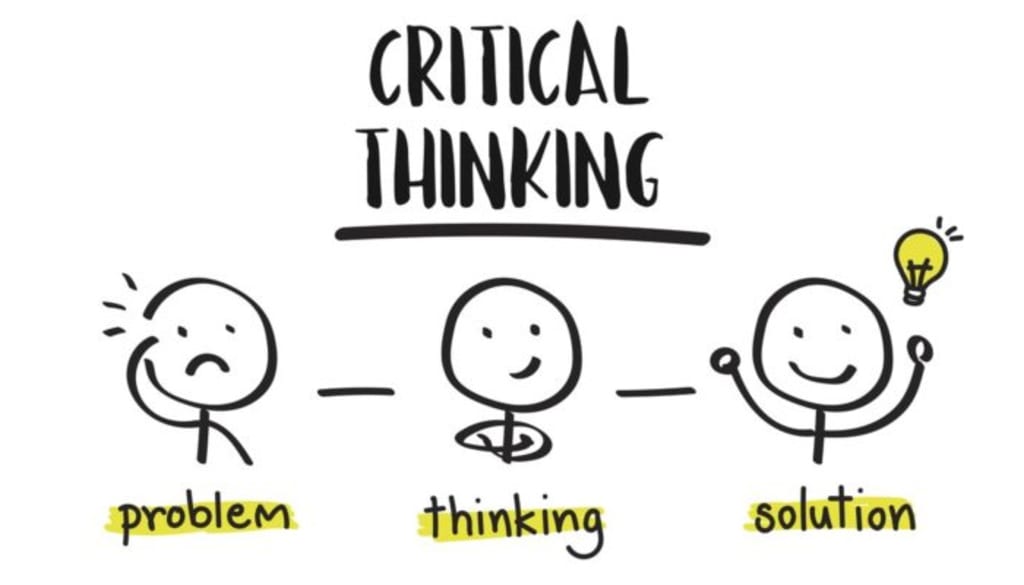
The people who do not think with the flow of the underlying thinking paradigm of the society are called sometimes critical thinkers. These are the people who take a deeper path of thinking. Through them, the thinker improves the quality of his thinking and does not get into the group tank.
Aristotle provides the foundation of critical thinking as
“It is the mark of an educated mind to be able to entertain a thought without accepting it."
Philosophers and intellectual experts believe that critical thinking is the ability to think clearly and rationally, understanding the logical connection between information, data and the ideas. Critical thinking has been the subject of much debate and thought since the time of early Greek philosophers such as Plato and Socrates and has continued to be a subject of discussion into the modern age, for example the ability to recognize misinformation, disinformation, and the rumors.
Critical thinking means being able to develop your own standards and make decisions for yourself. Do not accept opinions or statements unjustifiably without analyzing and presenting your own views.
Critical thinking helps the decisions that take place in life, from small things, friends, work or careers to the support of political candidates, what they eat, where they live, or they choose to live. Following are the key components of critical thinking.
1. Thinking about Goals and Purpose of the things
Every thought has a purpose. People who know it clearly are more likely to reach out. A goal should be identified that is genuine, consistent, and fair. For example, it would be possible to clearly and clearly the purpose of reasoning any case: life problems, subjects studied.
2. Data and Information
Critical ideas must be based on hard data, evidence, experience, or research to be reliable and sensible. The information collected has been verified to be accurate and genuine, and the analysis used by other people is also performed. An attempt has been made to support the evidence and your views are also contradictory. For example, it is useful to collect data from the serious press or bulletin of the state in question to find out what happens in war in a nation. Based on these, some questions can be formulated and critical thinking can be redirected.
3. Reasoning and Questionings
Thinking on the general ideas of the things – what its purpose was and how this is good to solve a problem or situation. A clear and precise question is asked, and an answer is sought that considers different perspectives. For example, if a student is getting grades far below their level, they may have to ask themselves what's wrong.
4. Explanations
Explanations of the events should be based on the data and questions drawn. It is important to check the logic of interpretation. It should be clear and related to what was investigated. For example, this can be interpreted by comparing useful features and other information to determine the price of an item that has the best output in the market.
5. Assumptions
These are the beliefs we value. Some are legitimate and some are not. We must distinguish between those that have not been examined in detail and critically. This is a difficult task because beliefs are at an unconscious level. For example, when a food like caviar is priced higher, will its price be justified? Assumptions begin when we determine how much the item costs because of it (reduction? processing? tariff?).
6. Point of view
There can be more than one way to see or understand a problem. Efforts should be made to examine an issue globally with a broad, flexible, and non-judgmental approach. Avoid subjective. The approach may include time, culture, religion, gender, occupation, discipline, emotional state, economic interest, or age.
Critical thinking should be aware of these differences or perspectives and be able to understand an issue from different angles, whether you agree or not.
About the Creator
Tahir Ali
I am passionate to spend time with litrature. I am struggling to see, hear and percieve things that aren't really unfolded. I love to work in fields of Social, Psychological, Family, Spiritual, Cultural and Public Health issues.






Comments
There are no comments for this story
Be the first to respond and start the conversation.